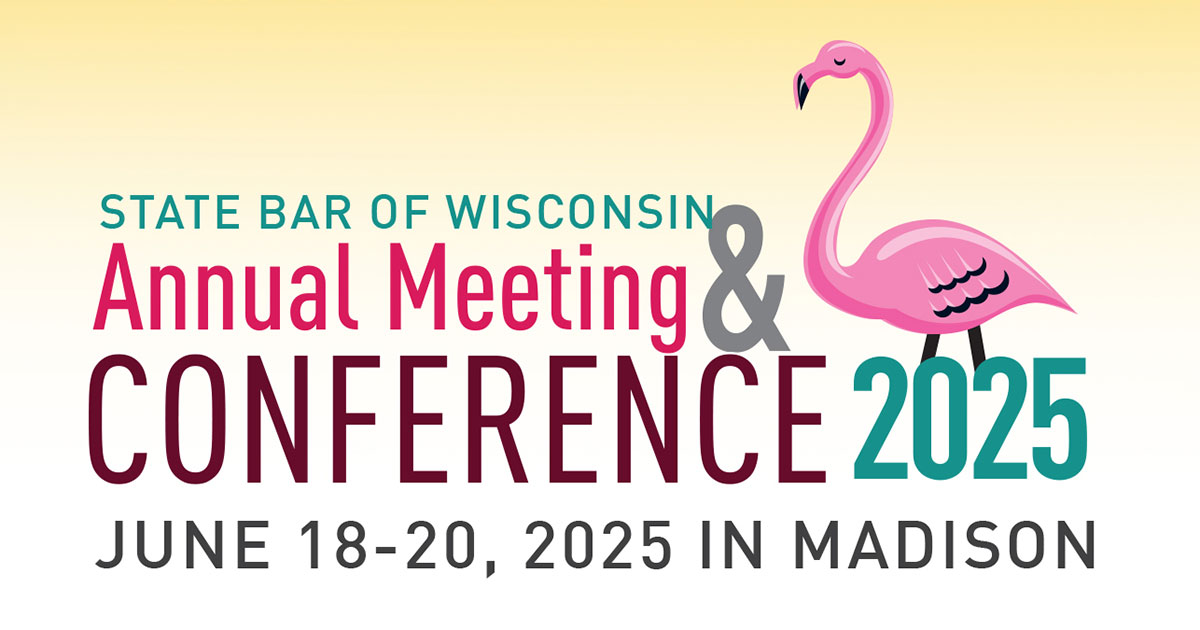May 28, 2025 – When states believe the federal government has overstepped its authority, they can challenge those actions through multistate litigation.
In a recent conversation ahead of his keynote at the State Bar of Wisconsin Annual Meeting & Conference, June 18-20, in Madison, Wisconsin Attorney General Josh Kaul offered an inside look at how and why the Wisconsin Department of Justice is engaging in this form of legal action – and why these cases matter to Wisconsin lawyers.
What Is Multistate Litigation?
"Multistate litigation involves collaboration among state attorneys general when shared legal concerns arise," Kaul explained. This typically occurs in areas like consumer protection or when federal policy changes threaten state interests.
By pooling resources and legal expertise, states can pursue coordinated legal strategies. “It allows us to get one resolution nationwide rather than a series of resolutions all over the country,” he said.
Wisconsin’s Current Cases
As of mid-May, Wisconsin is involved in 18 multistate lawsuits against the federal government. One major issue: challenges to changes in birthright citizenship policy initiated under the Trump administration.
Another involves efforts to dismantle or significantly alter federal agencies, including AmeriCorps, the Department of Education, and the Department of Health and Human Services.
“In each of these cases, the legal questions revolve around whether the changes comply with federal statutes and whether the agencies can still meet their obligations,” said Kaul.
How the DOJ Decides to Join a Lawsuit
Kaul said his office uses two key criteria to decide whether to join a multistate challenge:
Harm to Wisconsinites
Legal viability – Is there a sound legal basis for bringing suit, and does the state have standing to sue?
The state must demonstrate that it is directly impacted – not just that residents are affected.
The Challenges of Collaboration
Coordinating legal strategy across dozens of states is no small task. “Some cases involve more than 20 states,” said Kaul. “We communicate regularly – AGs and our staff – to ensure Wisconsin’s perspective is reflected.”
Some states lead particular lawsuits, but all contribute to briefing, declarations, and legal theory.
Why It Matters
“These are some of the most significant legal cases in the country,” Kaul emphasized. “They involve major policy changes and test the limits of executive authority.” The lawsuits often raise constitutional issues – particularly regarding separation of powers and federalism.
“One critical question is whether courts can hold the executive branch accountable,” Kaul noted, referencing ongoing disputes about compliance with court orders. “These cases go to the heart of how the rule of law functions in our system.”
Lawyers Will Learn More at Annual Meeting & Conference
In his keynote, Kaul will walk attendees through several high-profile cases, examining the legal principles, procedural strategies, and broader implications for state and federal authority.
Whether you're a litigator, public interest attorney, or corporate counsel, Kaul's session will offer insights into how multistate litigation is shaping the national legal landscape – and Wisconsin’s place in it.
Join Attorney General Kaul and hundreds of Wisconsin legal professionals June 18-20 in Madison. Register now at wisbar.org/AMC.

